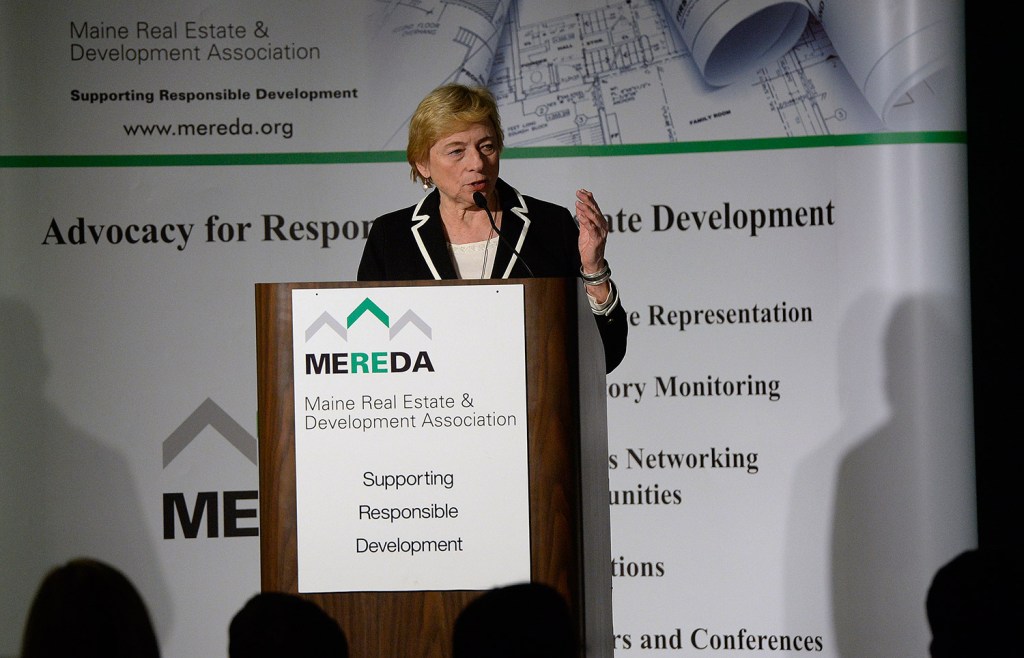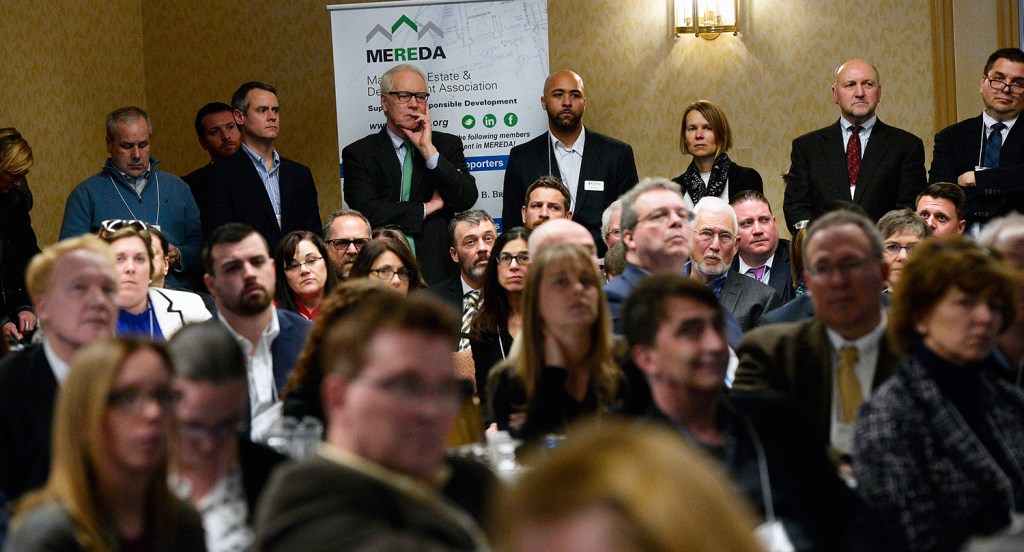Maine’s red-hot real estate landscape will likely cool in 2019, the result of economic uncertainty, high construction costs and gradually increasing interest rates.
Commercial real estate sale and lease transactions already have been trending downward in Maine since 2016 after several years of steady growth, but residential real estate and construction activity have continued to increase, analysts told a record crowd of over 900 at a Maine Real Estate & Development Association conference in Portland on Thursday.
That growth is expected to taper off as certain economic headwinds gather strength, speakers at the conference said. Still, they expressed overall optimism about the Maine real estate market’s immediate future.
Tim Hebert, owner of Hebert Construction LLC in Lewiston, said one of the biggest challenges for developers across the state is rising construction costs.
“These increases are due to labor shortages and rate increases, lack of competitive subcontractor pricing, increased material costs due to increased shipping costs, labor costs and the threat of tariffs,” Hebert said.
Those increased costs have made it particularly difficult for developers outside of southern Maine, where real estate values are relatively high, he said.
In some cases, Maine developers have decided to postpone or scrap their planned projects because the cost of construction was deemed too expensive, said Roxane Cole, managing member and commercial broker at Roxane Cole Commercial Real Estate LLC.
“Some people are saying, ‘I’m just not going to do it,'” Cole said.
Rising interest rates are another economic factor that could cause real estate activity to slow down in Maine, the analysts said. The U.S. Federal Reserve raised interest rates four times in 2018 and is expected to do so twice more this year, said Leslie Preston, senior economist at Canada-based TD Economics.
Interest rates are a major factor in Preston’s prediction that overall growth in Maine home prices will slow from 2 percent in 2018 to just 1.2 percent this year.
Brit Vitalius, principal of Vitalius Real Estate Group and president of the Southern Maine Landlord Association, said rising interest rates coupled with escalating prices have squeezed returns for some investors in the multifamily housing market and prompted them to take a breath. Certain parts of the sector had been seeing 20 percent year-over-year growth in sale prices.
“There’s still a lot of money and a lot of activity in the market, but the numbers are starting not to make sense,” Vitalius said. “I’d say things are beginning to settle, and that’s a good thing.”
Overall, U.S. economic indicators for 2019 remain solid, but there are several factors that could slow economic growth, Preston said. They include unresolved trade disputes, high government and corporate debt levels, and the ongoing partial shutdown of the federal government.
“We do think the impacts are going to accelerate the longer it goes on,” Preston said of the shutdown.
Still, she said the expected economic slowdown isn’t likely to accelerate into a full-blown recession.
Real estate professionals in Maine are likely to feel some additional anxiety about the recent changes in Maine’s government, said Andrea Cianchette Maker, a partner at Pierce Atwood in Portland and MEREDA’s top lobbyist.
With Democrats now in control of both legislative houses and the governor’s mansion, there is an air of uncertainty about what new policies may impact the real estate and construction industries in 2019, she said.
One potential upside of the new leadership is that it is likely to look favorably upon a number of bond proposals, Cianchette Maker said, which could boost the economy and provide work to contractors.
“I do think we’re going to see a lot of activity around rural broadband, probably supported by a bond,” she said.
Gov. Janet Mills addressed the crowd in the afternoon, pledging that her administration would make attracting young people to the state a top priority.
The lack of skilled workers was mentioned by several MEREDA presenters as a factor in sales and leases of commercial properties.
Mills also mentioned she had just signed the release of $15 million in senior housing bonds that had been tied up by the previous administration since 2015. The first phase of the funds is expected to create 200 new senior housing units and renovate 100 others. Her comment drew prolonged applause.
J. Craig Anderson can be contacted at 791-6390 or at:
Twitter: jcraiganderson
Send questions/comments to the editors.









Success. Please wait for the page to reload. If the page does not reload within 5 seconds, please refresh the page.
Enter your email and password to access comments.
Hi, to comment on stories you must . This profile is in addition to your subscription and website login.
Already have a commenting profile? .
Invalid username/password.
Please check your email to confirm and complete your registration.
Only subscribers are eligible to post comments. Please subscribe or login first for digital access. Here’s why.
Use the form below to reset your password. When you've submitted your account email, we will send an email with a reset code.